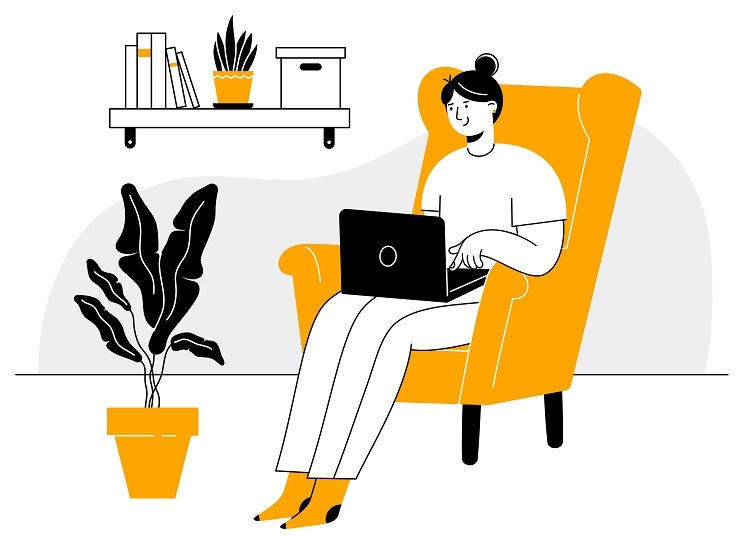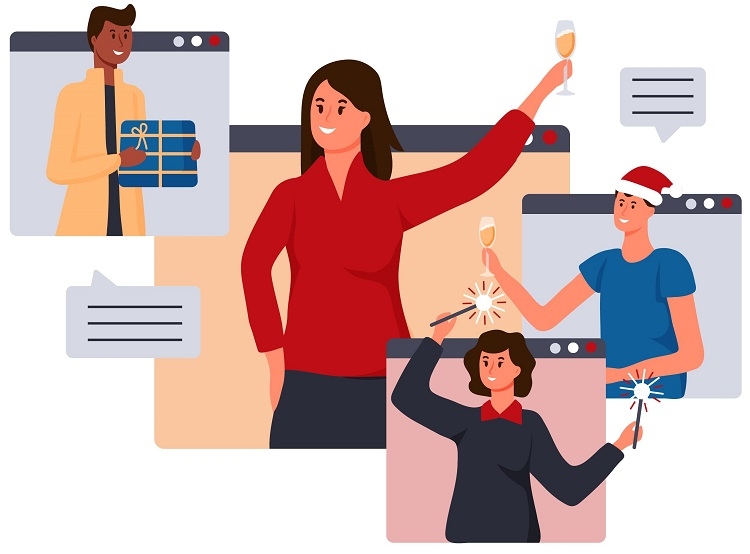Three new benefits to keep employees happy during the pandemic
Powerful combo – Physical and mental healthcare
COVID-19 poses a new challenge for human resource managers in terms of employee reassurance in both physical and mental health concerns. During this pandemic, some businesses are not hesitating to pay extra dollars for telehealth services to provide consultation for their employees. In addition, providing vaccines is also highly preferred as more than half of businesses have provided vaccines as a health benefit for their employees, according to a survey conducted by HR consulting firm Talentnet.
Besides physical health, mental health is another top priority of businesses during this period. According to the Ministry of Health, the fear of being infected, the boredom caused by losing connection with people, and the bread and butter worry can lead to mental disorders such as depression, anxiety, and even post-traumatic disorder.
 |
| Businesses should prioritise relieving employees of their concern for physical health problems and ensuring mental well-being amid the pandemic |
Nguyen Thi An Ha, head of Strategic Partnership at Talentnet advised, “More than ever, businesses should consider including psychological counselling services in their welfare packages. Cooperating with partners and experts in healthcare, nutrition, and insurance to provide in-depth sharing sessions for employees also needs to be prioritised. In fact, it is a trend that was applied by many large corporations around the world before the pandemic happened. This trend is still proving its effectiveness until now.”
One of the global businesses that has successfully applied the happy benefit package is Johnson & Johnson. To keep employees happy during the pandemic, J&J has actively encouraged employees to regulate proper rest time, and organised psychological counselling activities and provided emotional management courses or meditation sessions for employees. These activities are simple methods that any Vietnamese businesses can apply based on their actual condition.
Improving home office conditions
After a long time working at home, employees have been adapting to the new working style and do not want to return to work at the office. According to Forbes, after the pandemic, about 92 per cent of Americans want to continue working from home once per week, and about 80 per cent of Americans expect to work remotely three days a week.
This new trend creates a premise for businesses to develop welfare packages when working from home. An American online recruitment company announced that it would reimburse employees up to $500 for the cost of renovating their home offices. This move not only scores in the eyes of their current employees but also attracts various new talents.
 |
| Improving work from home helps employees enhance productivity and happiness during the pandemic |
In Vietnam, many businesses also applied home benefits during the pandemic. According to Talentnet's third COVID-19 Human Resources Policy Survey, 34 per cent of companies agreed to give employees some monetary benefits while working from home, such as paying for electricity, phone, and internet bills.
Enhancing communication, doubling understanding
During the pandemic, the bonds between colleagues may be cut. According to the employee communication and advocacy platform Smarp, difficulty in communicating with colleagues is among the top three reasons why employees do not like working from home. Additionally, a survey from Gallup found that social distancing made it difficult for 74 per cent of employees to fully grasp important information.
Understanding this barrier, a telecommunications company in Germany, Deutsche Telekom, implements an idea to take down the fences. Managers are asked to upload an instructional video to an internal application on what important works need to be done. This initiative was proven to be effective in improving work processes significantly as well as helping employees feel more connected.
 |
| An activity while being virtual yet creating real connections is one of the ways to strengthen interaction between employees |
In Vietnam, while it is a long way to be back to the office, businesses should encourage staff interactions by using applications, intranets, and popular video call platforms like Zoom and Skype. HR practitioners may consider some activities that will be warmly welcomed by employees, such as organising a virtual event that creates connections, such as lucky draws and team-playing games.
According to the World Health Organization, each year, depression and anxiety in employees cost companies around the world about $1 trillion in lost productivity. Mental states, performance, and business results are the three standing upright dominoes. In that case, when the mental state is shaken, the whole set of dominoes can be in danger. Businesses may be facing a long to-do list to reassure employees.
What the stars mean:
★ Poor ★ ★ Promising ★★★ Good ★★★★ Very good ★★★★★ Exceptional
Related Contents
Latest News
More News
- State corporations poised to drive 2026 growth (February 03, 2026 | 13:58)
- Why high-tech talent will define Vietnam’s growth (February 02, 2026 | 10:47)
- FMCG resilience amid varying storms (February 02, 2026 | 10:00)
- Customs reforms strengthen business confidence, support trade growth (February 01, 2026 | 08:20)
- Vietnam and US to launch sixth trade negotiation round (January 30, 2026 | 15:19)
- Digital publishing emerges as key growth driver in Vietnam (January 30, 2026 | 10:59)
- EVN signs key contract for Tri An hydropower expansion (January 30, 2026 | 10:57)
- Vietnam to lead trade growth in ASEAN (January 29, 2026 | 15:08)
- Carlsberg Vietnam delivers Lunar New Year support in central region (January 28, 2026 | 17:19)
- TikTok penalised $35,000 in Vietnam for consumer protection violations (January 28, 2026 | 17:15)

 Tag:
Tag:




















 Mobile Version
Mobile Version